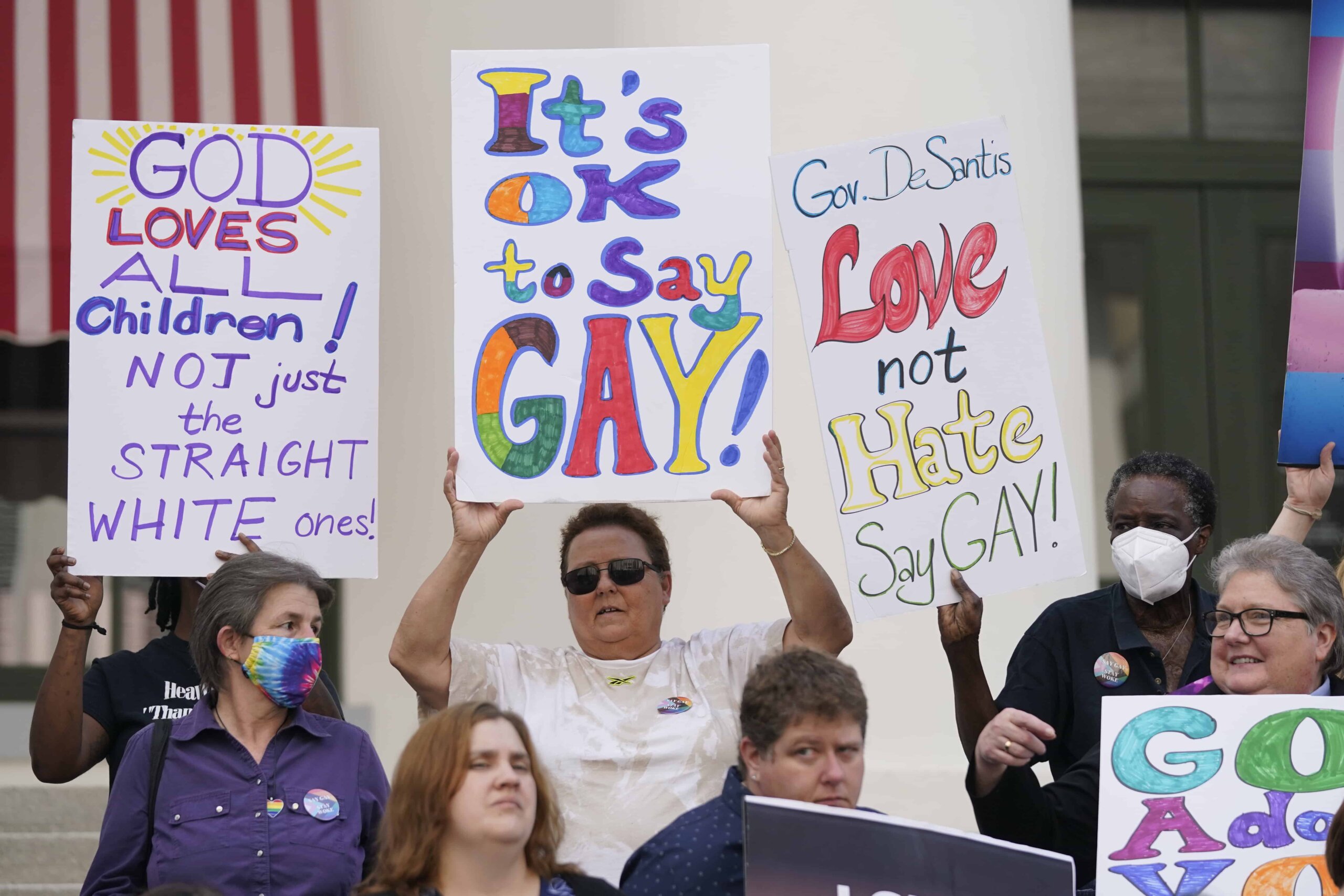A majority of Americans oppose attempts by Republican lawmakers to limit discussions of sexual orientation and gender identity in classrooms, according to a new poll.
More than six in 10 respondents (62 percent) said they disapproved of legislation like Florida’s controversial “Don’t Say Gay” bill in a survey conducted by ABC News and the market research company Ipsos. Only 37 percent of the 622 U.S. adults polled between March 11 and 12 expressed support for the bill, which would ban teachers from addressing topics pertaining to the LGBTQ2S+ community in K-3 classrooms.
According to the poll, Americans of all education backgrounds expressed opposition to Florida’s legislation, which currently sits on the desk of Republican Gov. Ron DeSantis after passing both houses of the state’s legislature. DeSantis has signaled he plans to sign it.
While older Americans are more likely than young generations to be in favour of “Don’t Say Gay” bills, no age group expressed majority support for these kinds of proposals, which have been introduced in more than 10 U.S. states this year. But even as Georgia, Oklahoma and Tennessee and others weigh similar legislation, just 43 percent of Americans over the age of 65 want to curb conversation on LGBTQ2S+ topics in classrooms.
Unsurprisingly, the group most opposed to “Don’t Say Gay” bills was LGBTQ2S+ respondents. More than six in seven (87 percent) of queer and trans people did not support banning discussions on LGBTQ2S+ identities in schools.
The only group in the Ipsos survey that was strongly in favour of proposals like the Florida legislation were Republicans. Six in 10 people (61 percent) who identified themselves as GOP partisans said they agree with “Don’t Say Gay” bills, as opposed to just 20 percent of Democrats and 35 percent of Independents.
“These findings could be harbingers of doom for Republicans.”
While Republicans are generally thought to be more conservative on LGBTQ2S+ equality and other social issues, the results of the survey are an about-face from polling released days earlier showing a slim majority of GOP voters oppose banning gender-affirming care for trans youth. In a survey conducted by the left-leaning think tank Data for Progress, just 43 percent of Republicans said the government should intervene to prevent trans kids from accessing medications like hormone and puberty blockers.
Overall, a strikingly similar number of Americans do not support trans youth medical care bans or “Don’t Say Gay” bills. Polling from Data for Progress found that 63 percent of respondents felt that decisions regarding proper treatment for gender dysphoria should be left up to trans kids, their parents and their doctors.
These findings could be harbingers of doom for Republicans as they double down on culture war issues ahead of the 2022 midterms. After Disney announced that it would no longer donate to backers of Florida’s “Don’t Say Gay” bill, DeSantis accused critics of the bill of being “woke.” Opponents have criticized the legislation as potentially harming LGBTQ2S+ students by preventing teachers from creating safe spaces for them in schools.
“You have companies, like at Disney, that are going to say and criticize parents’ rights, they’re going to criticize the fact that we don’t want transgenderism in kindergarten, in first-grade classrooms,” he reportedly told supporters last week. “First graders shouldn’t have ‘woke’ gender ideology imposed in their curriculums.”
LGBTQ2S+ advocates have voiced concern that the Florida bill’s impact will go beyond “primary grades.” The bill bars discussions that are “not age appropriate or developmentally appropriate for students,” per its text. Because that phrase is not defined and the legislation’s authors have opposed attempts to clarify the language, it could potentially apply to any K-12 classroom.


 Why you can trust Xtra
Why you can trust Xtra


